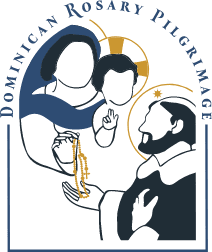How can St. Joseph help you this Lent? I propose five ways.
- Simplicity
In John 6, when Jesus boldly declares, “I am the bread of life,” his hearers murmur among themselves and ask, “Is this not Jesus, the son of Joseph?” (Jn 6:41). Apparently, they considered Joseph to be just a regular, law-abiding Jew—an average Joe, if you will. By implication, Joseph didn’t go around Nazareth working miracles and polishing his halo; rather, he lived his holiness wrapped in simplicity.
Every year on Ash Wednesday, we hear: “Take care not to perform righteous deeds in order that people may see them” (Mt 6:1). Our prayer, fasting, and almsgiving should be kept for God’s eyes only. Yet we should also remember Jesus’ words earlier in the Sermon on the Mount: “Your light must shine before others, that they may see your good deeds and glorify your heavenly Father” (Mt 5:16).
The key difference is simplicity. When we act simply, we take no heed of our glory, but seek God’s alone. Such simplicity is a modesty of soul, guarding the intimacy we have with God through prayer, fasting, and almsgiving.
- Work
On May 1, we celebrate the feast of St. Joseph the Worker. He is a saint who knows how to roll up his sleeves and put in a hard day’s work. Joseph reminds us of the dignity of work, beautifully captured in Gaudiem et Spes:
Through labor offered to God man is associated with the redemptive work of Jesus Christ, Who conferred an eminent dignity on labor when at Nazareth He worked with His own hands. (GS 67)
Lent is a good time to live out this dignity of work by imitating St. Joseph. God draws us to Himself through the ordinary means of simply fulfilling our tasks. We need not search for extraordinary acts of penance or lengthy prayers, especially if these detract from our normal duties. So before we add on extra practices, we should redouble our attentiveness to the work already before us.
- Rest
While Joseph shows us the dignity of work, he had some of his best moments as he slept. It was here that God spoke to him repeatedly through dreams.
We can distinguish two types of rest: physical sleep and spiritual abandonment to God. Both are critical for holiness. Sleep renews us for another day of work and love. Just ask the mother of a newborn about the importance of sleep. Abandonment increases our hope in God’s loving providence, strengthening our faith in times of trials and creating room for love to grow.
By both sleep and abandonment, we recognize our limits: we need sleep and we need God. We can see this pairing in the beginning of Psalm 127:
If the Lord does not build the house,
in vain do its builders labor;
if the Lord does not watch over the city,
in vain does the watchman keep vigil.In vain is your earlier rising,
your going later to rest,
you who toil for the bread you eat,
when he pours gifts on his beloved while they slumber.
This psalm proclaims the futility of all-nighters and the emptiness of self-made saints. Psalm 127 is a good reminder during Lent, as we up the ante with prayer, fasting, and almsgiving. These are not exercises of our sheer will-power. Our practices on their own do not make us holy. God makes us holy. And sometimes, God bids us to rest.
Remember the words of Moses to the Israelites as Pharaoh pursued them: “The LORD will fight for you; you have only to keep still” (Ex 14:14), as well as the words of Isaiah: “By waiting and by calm you shall be saved; in quiet and in trust shall be your strength” (Is 30:15).
- Family
Joseph was a great man, but where would he be without his family, without Jesus and Mary? I doubt he would make many appearances in 21st-century blog posts—most 1st-century Jewish carpenters don’t.
Joseph’s holiness came through Jesus and Mary, by serving them and receiving from them. Similarly, God draws us to Himself through those around us. We do not become saints as isolated individuals, but as members of a family or community.
With their parents leading the way by example and family prayer, children and indeed everyone gathered around the family hearth will find a readier path to human maturity, salvation and holiness. (GS 48)
Lent is a good opportunity to examine our closest relationships. Is there a need to forgive? Is there love that needs rekindling? Is there gratitude missing? These are excellent ways of giving alms.
- Jesus and Mary
Of course, Joseph’s family isn’t your normal family. There’s a special grace about Jesus and Mary (understatement of the year). If we compare our families to the Holy Family, we might be tempted to discouragement. But by God’s goodness, Jesus and Mary are not distant, but rather intimately close to us: Jesus is our savior and brother, and Mary is our tender mother. Joseph, for his part, can help stay close to Jesus and Mary, just as he did.
In the end, all of our Lenten practices are simply saying “yes” to Jesus, just as Mary first did at the Annunciation. May Mary pray for us, and may Jesus bring us to the Father.
This article was originally published on dominicanajournal.org and was written by Fr. Joseph Martin Hagan, O.P.
